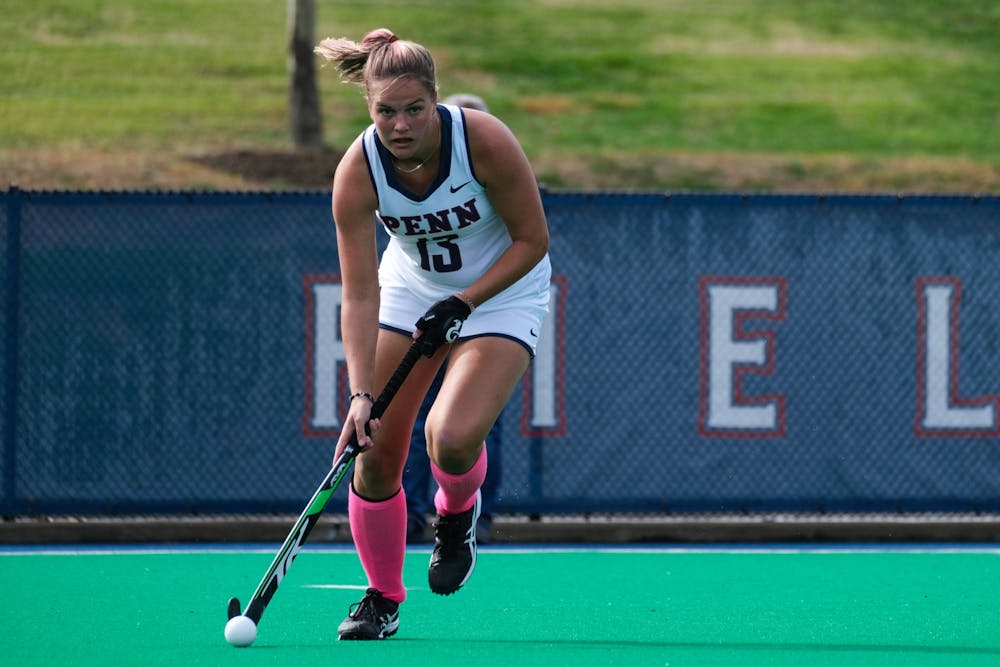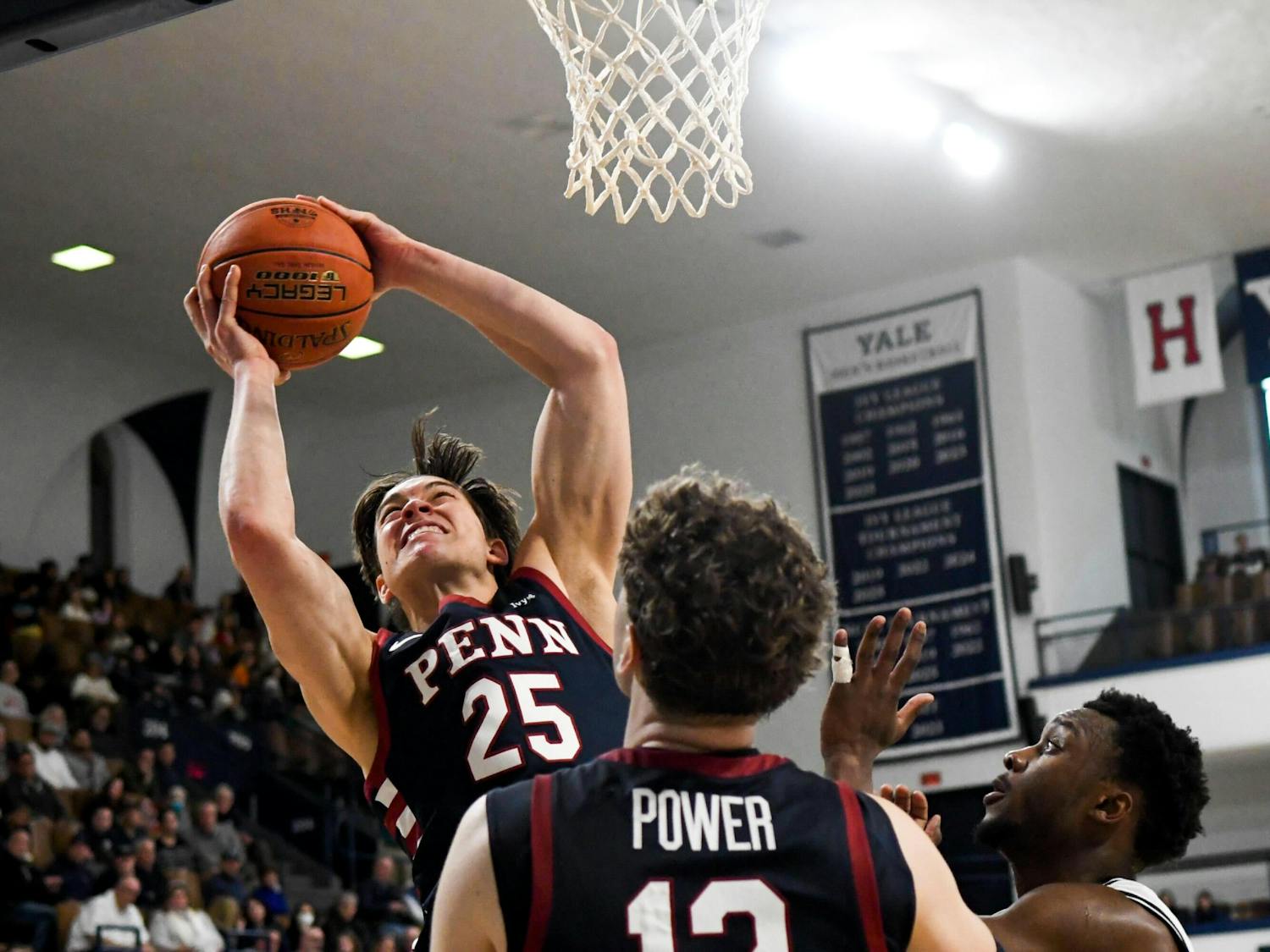As of fall 2018, international students made up about 21% of the student body at Penn. So it shouldn’t come as a shock that they are also distributed among sports teams for the Quakers.
Specifically, Penn field hockey has followed a recent trend in recruiting international players. This season, the team has two players who hail from countries other than the United States.
Freshman defender Elita van Staden joined the Red and Blue from Pretoria, South Africa, and sophomore goalie Sarah Lavers is originally from Harpenden, England.
“It's actually a funny story, I didn’t know that Americans played field hockey because I never saw the Americans [playing] on television or anything,” van Staden said. “Then my dad told me that if I wanted to study abroad, America would be the place. I wasn’t really sold on the idea but then I got into recruiting, so I started talking to a couple of coaches. The deeper I got into the process, the more I knew I wanted to come to America.”
The idea to start recruiting internationally has been rooted in statistics and achievements from past years.
“If you look at the statistics [for international players] of the last five years, the first team and second team All-Americans for field hockey has increased from high 40s to high 60s in terms of percentages,” coach Colleen Fink said. “68% of All-Americans in the U.S. for field hockey were international."
“We want to compete at the highest level in the Ivy League, and our team is so good and everyone is so strong that this might just be the next little bit of that added edge to take that final step," Fink added.
While there are benefits to recruiting internationally, there are also drawbacks. One disadvantage is that in the recruiting process for an international player, coaches can only rely on film and talk to players via video call or over the phone.
RELATED:
Penn field hockey drops season finale to Ivy League champs Princeton, 3-1
Penn field hockey uses hot start to capture 3-2 road win against Brown

Looking toward the future, Penn may look to recruit more players from Canada and Mexico.
According to the Penn Financial Services website, “Only applicants who are citizens and permanent residents of the United States, Canada, and Mexico are reviewed on a need-blind basis, meaning that the degree of need will not affect admission decisions.”
This has led to our northern neighbor, in particular, to turn into a hotbed for recruits upon which coaches can draw.
“We have been looking at Canada quite a bit because the financial aid setup for Canadian students is a little different,” Fink said. “I heard that they treat Canadians from the same standpoint as they do for a person from the United States, so it makes it a little easier in terms of the need.”
There is a high commitment to recruiting internationally with the hope of getting prospects for every year in future recruiting classes. Even more future Quakers from around the world are expected to join the team next season.
“My assistant coach and I are going to be traveling in December to both Amsterdam and England, where we hope to build connections with some coaches,” Fink said. “While we are completely committed to recruiting domestically, we are also committed to trying to bring in one prospect per year to broaden the program from an international standpoint.”
While one might think that being an international player would be a difficult adjustment, the field hockey family has embraced its new teammates from abroad with open arms.
“In the beginning, I was really nervous — [wondering], 'Am I going to fit in with the culture, am I going to get along with the girls?' — but every single girl is amazing and rooting for me,” van Staden said. “I felt at home from the first day that I was with the team, and I think everybody on the team is so close that it’s not a big deal that I'm an international player."
Given the positive experience Penn's current international players are having on the team, the global cohort is only set to grow in the future.
Correction: A quote from coach Colleen Fink was incorrect. It should have read "68% of All-Americans in the U.S. for field hockey were international," not 68% of all students. The DP regrets the error.









